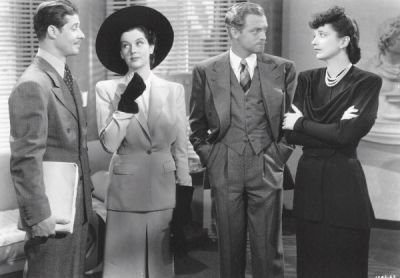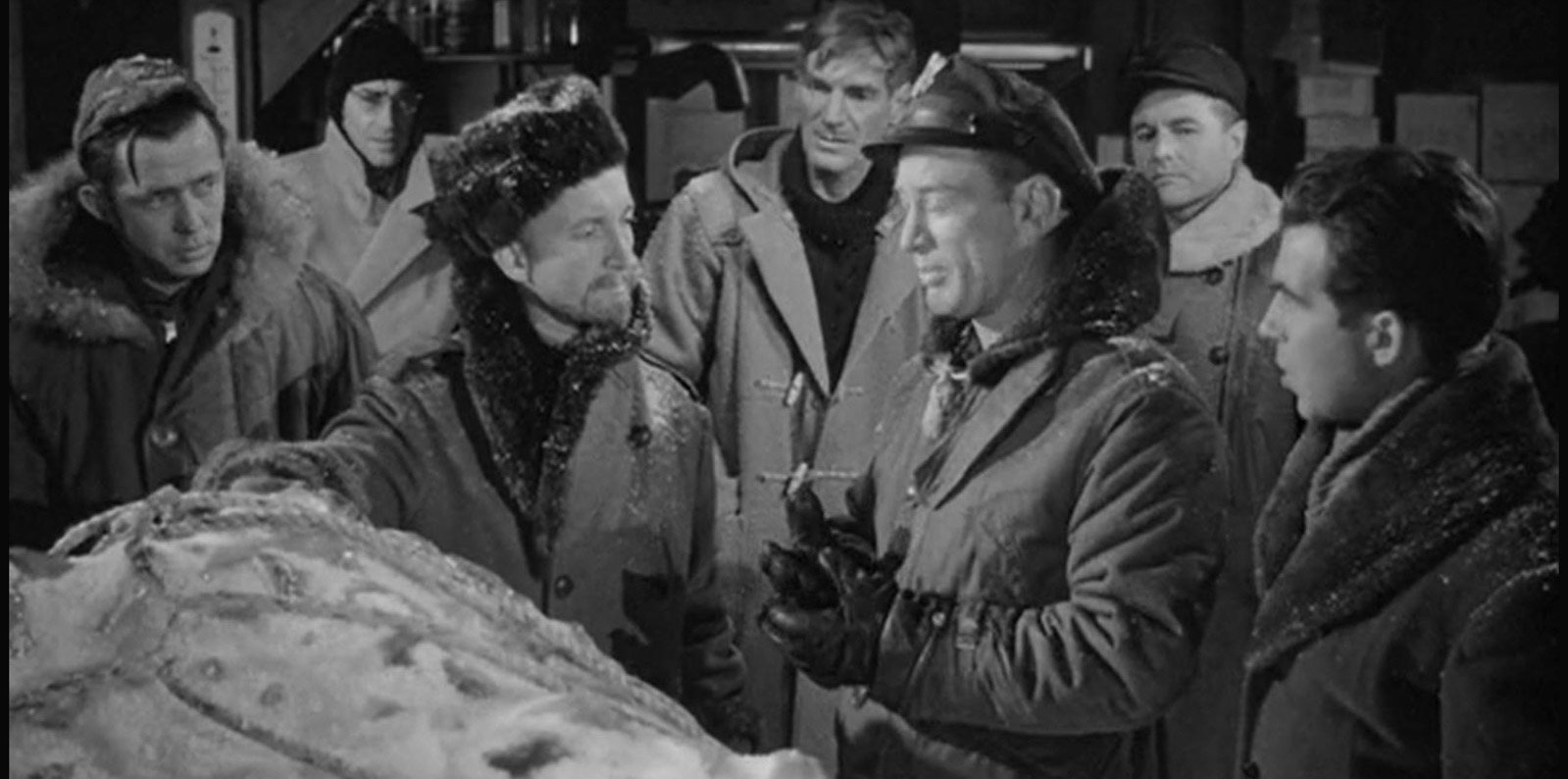Here’s another one about a journalist (although she’s one of four leads in this story). Lucky Downing (Wayne Morris) is an out-of-work engineer who take a job pretending to be a wealthy woman’s fiancee for a month. The woman in question is Elinor Bentley Fairchild (Alexis Smith) who comes from an eccentric wealthy family and Lucky likes her instantly. What Lucky and his “valet” Clarence (Willie Best) aren’t aware of is that Elinor’s last three engagements ended in tragedy, each man dying or meeting a terrible fate in bizarre circumstances. The only living former fiancee, Paul Myon, asks a local reporter who has been following the strange events, Lil Barstow (Brenda Marshall), to warn the latest engaged man of the “smiling ghost” and that Elinor is cursed. Also, there’s a weird old man in the house who wants to add Clarence to his collection of shrunken heads. Do you have all that? Good. Let’s talk about writing and journalism.
Even though her first thought is of her newspaper, Lil does act like a decent person as well as a reporter. She warns Lucky about the fact that he’s being used as a “guinea pig” to lure out a killer, but still wants her story. When he decides to stay because of some fake tears from Elinor, Lucky becomes Lil’s girl Friday as she investigates the murders (and attempted murders). They make a deal that she will not print a word of what is going on until she had Elinor’s permission. Of course, Elinor doesn’t know they’ve made this agreement. Lil is also respectful of Paul Myron who is trapped in an iron lung and convinced that the ghost of fiancee #1 is behind everything. She’s logical and calm in the face of danger even as she starts to enjoy Lucky’s company. The only time she slips from her journalistic integrity is when Elinor declares she really wants to marry Lucky.
Spoilers!
Elinor insults Lil by calling her stories sappy and “hysterical”, yet allows Lil to come to the ceremony so she can finish her article (and rub it in Lil’s face that Elinor won Lucky). Lucky isn’t aware that Lil likes him as he’s too busy saving Clarence from the crazy man who wants his head. As the wedding begins, Lil excuses herself to a different room with a typewriter where the “smiling ghost” kidnaps her. Clarence accidentally find a secret passage the “ghost” has been using to get around the house and Lucky follows it to a tied up Lil. The “ghost” threatens them and Lil figures out that the killer is actually Paul Myron in a mask. Elinor had dumped him after his paralyzing car accident. When he healed (not paralyzed after all), he determined to both punish Elinor and make sure no other man could have her. And he would’ve gotten away with is to if it’s wasn’t for those meddling kids. Also, it turns out that the crazy man only wanted to use Clarence to make a model of his head, not actually kill him.
I assume Lil will remain a reporter after she and Lucky marry as, by the end of movie, he still doesn’t have a job.


























